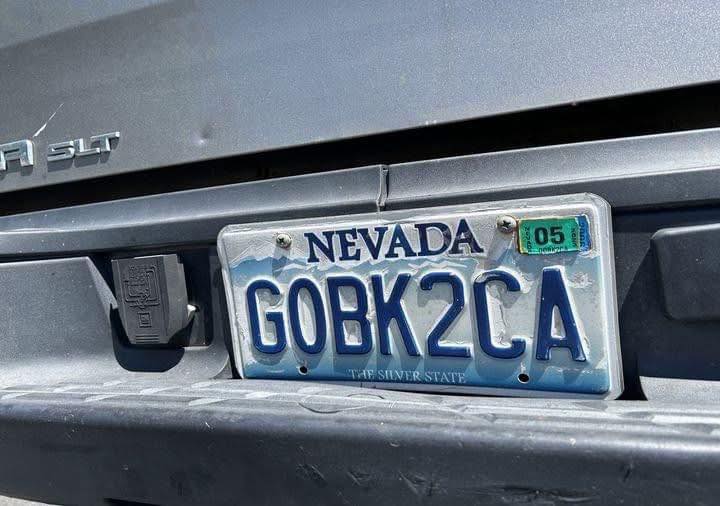A Nevada license plate that recently gained viral attention on Facebook—amassing over 80,000 likes—has been officially recalled by the Nevada Department of Motor Vehicles. The plate, which read “Go back to California,” sparked a wide range of reactions online. While some users viewed the phrase as lighthearted or humorous, others found it concerning. In response, the DMV reviewed the message and determined that it did not comply with their guidelines for acceptable content, leading to its removal.
The incident sheds light on the growing popularity—and complexity—of personalized license plates. Across the country, these custom plates allow drivers to express their individuality through clever wordplay, cultural references, or personal mottos. They’ve become a form of mobile self-expression, offering everything from inside jokes to nods to careers, hobbies, or favorite sports teams. But with creative freedom comes the challenge of ensuring that content remains respectful and appropriate for all audiences.Every state has specific policies in place that govern what can appear on a license plate. These rules typically prohibit language that could be interpreted as offensive, misleading, or referencing adult or illegal content. Some plates are rejected for subtle or hidden meanings, while others may cross the line unintentionally. Examples of disallowed plates in various states include combinations that suggest profanity, promote unsafe behavior, or reference controversial subjects.Nevada, like many states, uses a dedicated review board to evaluate personalized plate requests. Each submission is checked against guidelines that address issues such as obscenity, hate speech, drug references, or content that could be seen as inciting negativity. Despite these standards, the process isn’t always straightforward. What one reviewer finds objectionable, another may interpret as harmless or satirical. This subjectivity can lead to frustration among applicants, especially when their plate is denied without a clear explanation.
Personalized plates tend to be particularly popular among car enthusiasts and individuals looking for a unique way to stand out on the road. They often reflect humor, pride, or creativity. But as the number of custom applications continues to rise, so too does the need for clear, consistent standards that reflect evolving cultural norms and public expectations.The recall of the “Go back to California” plate is a timely example of how even a few words can spark broader conversations about public messaging, freedom of expression, and the role of state agencies in moderating content. As DMVs work to strike a balance between creativity and community standards, they face the ongoing challenge of supporting personal expression while promoting a respectful public space for all.
